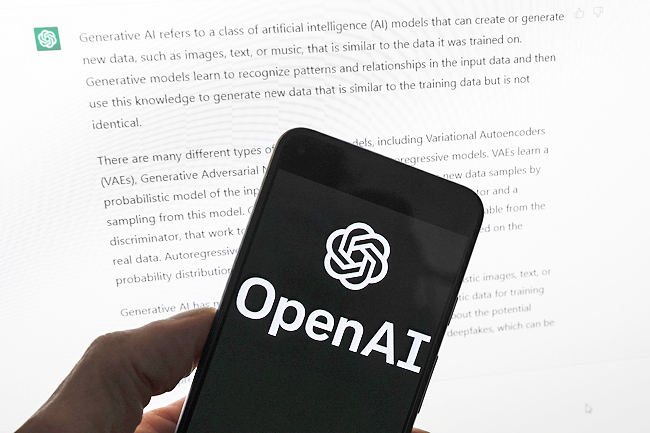ROME (AP) – Italy is temporarily blocking the artificial intelligence (AI) software ChatGPT in the wake of a data breach as it investigates a possible violation of stringent European Union (EU) data protection rules, the government’s privacy watchdog said on Friday.
The Italian Data Protection Authority said it was taking provisional action “until ChatGPT respects privacy”, including temporarily limiting the company from processing Italian users’ data.
United States (US)-based OpenAI, which developed the chatbot, said late on Friday night it has disabled ChatGPT for Italian users at the government’s request. The company said it believes its practices comply with European privacy laws and hopes to make ChatGPT available again soon.
While some public schools and universities around the world have blocked ChatGPT from their local networks over student plagiarism concerns, Italy’s action is “the first nation-scale restriction of a mainstream AI platform by a democracy”, said director of the advocacy group NetBlocks Alp Toker, which monitors internet access worldwide.
The restriction affects the web version of ChatGPT, popularly used as a writing assistant, but is unlikely to affect software applications from companies that already have licenses with OpenAI to use the same technology driving the chatbot, such as Microsoft’s Bing search engine.
The AI systems that power such chatbots, known as large language models, are able to mimic human writing styles based on the huge trove of digital books and online writings they have ingested.

The Italian watchdog said OpenAI must report within 20 days what measures it has taken to ensure the privacy of users’ data or face a fine of up to either EUR20 million or four per cent of annual global revenue.
The agency’s statement cites the EU’s General Data Protection Regulation and pointed to a recent data breach involving ChatGPT “users’ conversations” and information about subscriber payments.
OpenAI earlier announced that it had to take ChatGPT offline on March 20 to fix a bug that allowed some people to see the titles, or subject lines, of other users’ chat history.
“Our investigation has also found that 1.2 per cent of ChatGPT Plus users might have had personal data revealed to another user,” the company had said. “We believe the number of users whose data was actually revealed to someone else is extremely low and we have contacted those who might be impacted.”
Italy’s privacy watchdog, known as the Garante, also questioned whether OpenAI had legal justification for its “massive collection and processing of personal data” used to train the platform’s algorithms. And it said ChatGPT can sometimes generate – and store – false information about individuals.
Finally, it noted there’s no system to verify users’ ages, exposing children to responses “absolutely inappropriate to their age and awareness”.
OpenAI said in response that it works “to reduce personal data in training our AI systems like ChatGPT because we want our AI to learn about the world, not about private individuals”.



















































